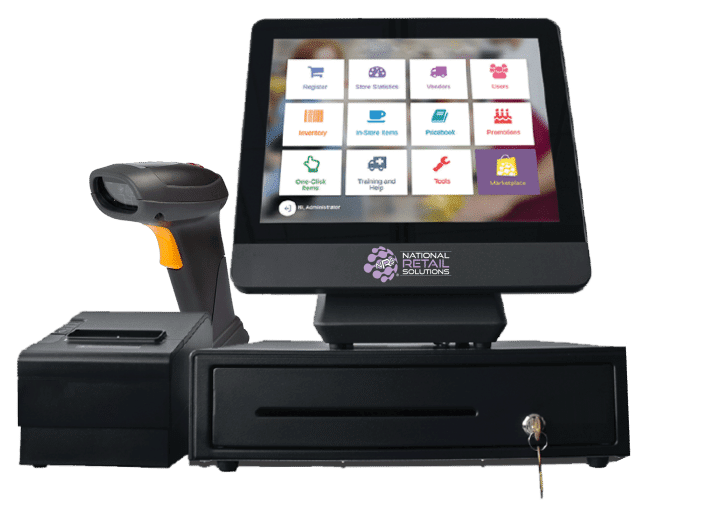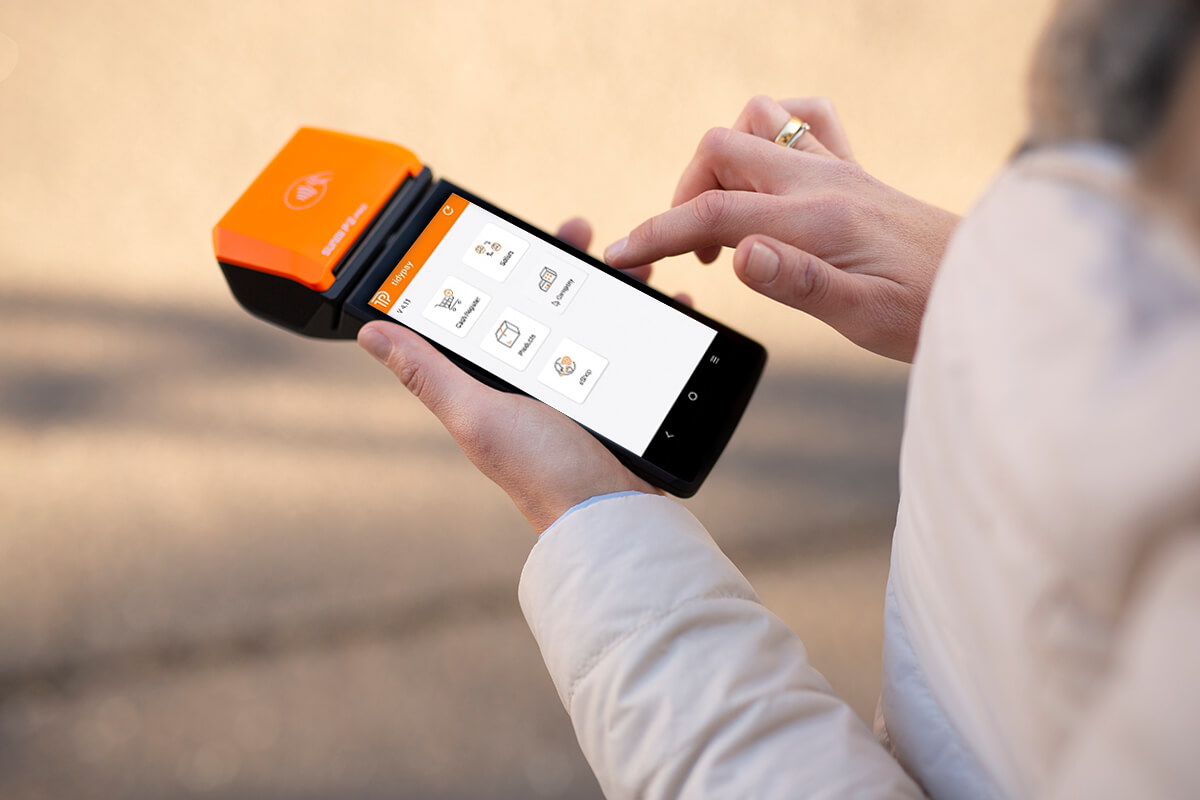Fascination About Clover Pos
The Ultimate Guide To Pos System For Small Business

Point of Sale Systems: Retail Point-Of-Sale Solutions Streamline Transactions
Unknown Facts About Pos Software

Hardware Components of a Point of Sale System What makes a POS system tick? It's not just software application; the hardware plays a starring function. Consider it as the body to the software's brain. Without the ideal hardware, even the most sophisticated POS software is simply a quite face. Essential POS Hardware So, what are the must-haves? Let's break it down. The central processing system, typically a check here computer or tablet, is the heart of the operation. The screen or touchscreen show allows staff to engage with the system. A barcode scanner accelerate the checkout procedure. Remember the days of manually entering each code? The reliable invoice printer provides customers with a record of their purchase. A cash drawer keeps your cash safe and organized. A card reader enables customers to pay with credit or debit cards. Diving Deeper: Beyond the Basics However wait, there's more! Depending on your service, you may need specialized hardware. A restaurant might include cooking area printers to relay orders, while a retail shop may use label printers for item tagging. Ever question how your regional pastry shop instantly prints those delicious-looking labels? Choosing the Right Hardware: A Balancing Act Selecting the right hardware isn't almost purchasing the most pricey equipment. It's about discovering the sweet area in between performance, resilience, and budget plan. A small company simply starting might choose a more standard setup, while a high-volume retailer will need robust, high-performance devices. Is it much better to purchase new or utilized? Consider your choices thoroughly. A new system provides the current innovation and warranty protection, but a refurbished system can conserve you cash. The Future of POS Hardware What does the future hold? Anticipate to see much more integration with mobile phones, biometric scanners for employee authentication, and advanced analytics control panels showed on bigger, clearer screens. Imagine a world where inventory is immediately upgraded in real-time as products are scanned-- a world where you can track your best-selling product from throughout the world. The possibilities are limitless, and the hardware is continuously evolving to fulfill the needs these days's companies. Are you ready to upgrade your point of sale system?
Software Characteristics and Capabilities: The Heart of Your POS System
Ever enjoy a seasoned barista move through a busy early morning rush? Their secret isn't simply caffeine; it's a smooth dance with their POS system. The software is the conductor of your service symphony, orchestrating everything from sales to inventory. What notes should you be listening for? What capabilities genuinely matter in today's market?
Inventory Management: Beyond Counting Beans
Forget spreadsheets that haunt your dreams. Modern POS systems offer real-time inventory tracking, signaling you when your stock of artisanal coffee beans dips precariously low. Think about it as a digital guardian angel, preventing those uncomfortable "Sorry, we're out!" moments to consumers. What if you could also predict demand based on historic information? Numerous systems now provide forecasting tools, an effective weapon versus overstocking and lost sales. This assists prevent the predicament of lacking popular products or accumulating excess stock of slow-moving products, both of which can constrain cash flow and area.
Sales Reporting and Analytics: Translating the Data
Sales information is the new gold, and your POS system is the miner. Forget feeling in one's bones just how much you offered today. Dive deep into the information to discover trends, determine your very popular items, and understand customer behavior. Which menu product sets completely with the everyday special? Which promo resonated most with your clientele? These insights are not just interesting; they're actionable intelligence. Without reliable sales reporting, browsing the complexities of organization decision-making becomes like sailing without a compass, increasing the possibility of bad moves and missed opportunities.
Customer Relationship Management (CRM): Structure Bridges, Not Walls
Keeping in mind a regular consumer's name and favorite order is charming, but scaling that individual touch is challenging. POS systems with CRM capabilities enable you to track customer purchase history, preferences, and even birthdays. Imagine automatically offering a discount on their birthday-- a small gesture that cultivates commitment and encourages repeat organization. However there is the potential snag of poor data quality, which can lead to unreliable customer profiles and inefficient marketing efforts.
Payment Processing: Enhancing the Transaction
The checkout experience can make or break a sale. Smooth combination with various payment methods-- credit cards, mobile wallets, even copyright-- is non-negotiable. Can your system deal with split payments? Does it provide safe tokenization to secure customer data? A clunky payment procedure resembles striking a sour note in your business symphony, potentially disrupting the whole performance. Guaranteeing compatibility with developing payment technologies and adherence to security requirements are critical for keeping customer trust and functional efficiency.
Employee Management: Keeping the Team in Sync
From clocking in and out to managing authorizations and tracking efficiency, worker management includes improve operations and enhance accountability. Is scheduling a nightmare? Many POS systems use integrated scheduling tools, enhancing staffing levels based upon anticipated demand. A typical obstacle that is frequently ignored is the obstacle of integrating employee management performances with payroll systems, which can lead to mistakes and inefficiencies in wage computations.
Advanced Characteristics: Leveling Up Your Operations
- Table Management: Suitable for restaurants, this function enables you to imagine your dining room, track table status, and handle reservations.
- Commitment Programs: Reward your finest consumers and encourage repeat organization with incorporated loyalty programs.
- Online Purchasing Combination: Perfectly incorporate your POS system with online ordering platforms to expand your reach.
Picking the right POS system is about more than just performance; it has to do with finding a partner that can grow with your business. Consider your present requirements, anticipate future development, and do not hesitate to ask the hard questions. The right software can transform your service from a disorderly cacophony into an unified masterpiece.
Industry-Specific POS System Applications
Consider the local pastry shop, busy with early morning consumers craving fresh croissants. A generic POS system might manage deals, however can it handle intricate recipes, track component inventory, or instantly adjust production schedules based upon sales data? Most likely not. That is where the charm of industry-specific POS systems shines.
Dining establishments and Hospitality
For dynamic restaurants, speed and precision are paramount. How numerous times have you seen servers juggling orders, adjustments, and splitting costs, all while attempting to supply outstanding service? A dining establishment POS system streamlines these processes, enabling table management, kitchen order tickets, and even online buying integration. These systems typically consist of features like ingredient-level inventory tracking, essential for handling food costs and lessening waste. Ever question why your favorite meal is in some cases unavailable? It may come from an absence of correct inventory management.
- Table Management
- Cooking Area Order Tickets
- Online Buying Combination
- Ingredient-Level Stock Tracking
Retail Solutions
Retail, with its varied stock and client interactions, demands a different set of tools. Picture a boutique clothing store struggling to keep an eye on sizes, colors, and seasonal collections using a fundamental checkout system. An industry-specific retail POS system uses functions like barcode scanning, consumer commitment programs, and in-depth sales reporting. These systems can even integrate with e-commerce platforms, providing a seamless omnichannel experience for clients. Did you know some retail POS systems can predict future sales patterns based upon historic data? Now that is effective!
The Perils of a Mismatch
Selecting the incorrect POS system can produce substantial functional hurdles. A clothes boutique using a dining establishment POS, for example, would find it unsuitable for managing inventory with sizes and colors. The lack of appropriate reporting and analytics could result in mistaken getting decisions and lost revenue. The outcome might be comparable to attempting to fit a square peg in a round hole.
Key Factors to consider
Picking an industry-specific POS system requires cautious assessment. Consider your organization's distinct needs and functional workflows. Does the system integrate with existing software? Does it provide the required reporting capabilities? Is it scalable to accommodate future growth? A well-chosen POS system is not just a transaction tool; it's a strategic property that can drive effectiveness, enhance client fulfillment, and eventually, increase your bottom line. Keep in mind, it is a financial investment in your organization's future, not simply an expenditure.
Security Factors To Consider for Point of Sale Systems
Ever heard the tale of the mom-and-pop store that lost everything since of a single, ignored security flaw in their POS system!.?. !? It's a cautionary tale, and it highlights a critical aspect frequently eclipsed by the appeal of elegant features and structured operations. The truth is, a POS system is only as great as its security. What good is a system that crunches numbers in a flash if it enables lawbreakers to swipe client's information just as rapidly?
The Vulnerability Minefield
The digital landscape is a battlefield. Every POS system, despite size or elegance, is a prospective target. Are you really prepared for the threats prowling around the corner? The genuine pinch comes when you find that your out-of-date software has a gaping hole that hackers can exploit, turning your business into an unwitting accomplice in identity theft. The trouble is that hackers are crafty and are always changing their strategies.
Typical Security Gaps and Professional Tips
- Weak Passwords: "Password123" isn't cutting it. Use strong, distinct passwords for all POS system accounts and alter them frequently. Two-factor authentication is a must.
- Unsecured Networks: Your Wi-Fi is like leaving the front door open. Secure your network with strong file encryption (WPA3 if possible) and think about a separate network for your POS system.
- Outdated Software Application: Software application vendors spot security holes all the time. Stopping working to upgrade resembles inviting difficulty. Set up automated updates or schedule routine maintenance.
- Worker Training: Your personnel is your very first line of defense. Train them to recognize phishing efforts, safeguard passwords, and report suspicious activity.
Data File Encryption: Your Shield Versus the Dark Arts
Think about information encryption as a secret code. It scrambles sensitive information, like charge card numbers, making it unreadable to unauthorized users. Without encryption, your customers' financial information resemble sitting ducks, ripe for the selecting by cybercriminals. It's not simply about safeguarding your consumers; it has to do with securing your reputation and preventing hefty fines.
PCI Compliance: The Rulebook You Can't Overlook
If you accept credit cards, you're bound by the Payment Card Industry Data Security Requirement (PCI DSS) It's a set of security standards designed to secure cardholder information. Failing to comply can result in fines, charges, and even the loss of your capability to process credit card payments. It's a headache, yes, but it's a needed one. Believe of PCI compliance as the cost of doing organization in the digital age.
Consider this: every deal processed through your point of sale is a possible entry point for malicious actors. By carrying out robust security steps, you're not simply safeguarding your service; you're securing your customers' trust and guaranteeing the long-lasting practicality of your operations. The security of your POS system isn't just a technical problem; it's a service vital. It needs consistent vigilance, proactive steps, and a dedication to remaining ahead of the curve.